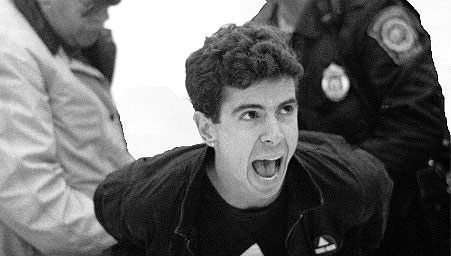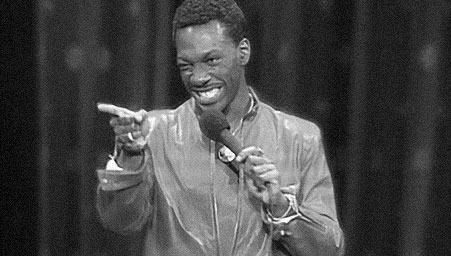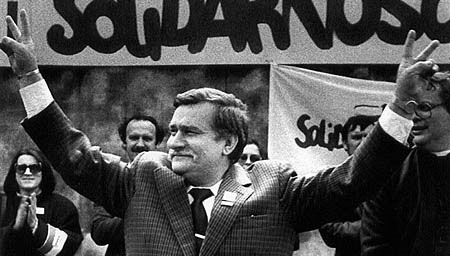How Long Ago
Monday, March 4th, 2013 • Politics / Writing
It’s strange to realize that you’re old enough to have seen the world change. The idea comes out of nowhere when you don’t expect it and aren’t looking for it but the frisson of recognition is always very strong—we grew up hearing our parents and grandparents talk this way and dismissing it as imposture, as willful dissociation from the present, so it’s disorienting to suddenly realize that you’re doing the same thing.
Two trains of memory collided this weekend, forcing me into the individual/historical fugue state I’m describing—but I wasn’t doing anything special; just catching up on some current events. Finding a bootleg copy of the acclaimed movie How to Survive a Plague (which just lost the 2012 Best Documentary Feature Oscar to the superb Searching For Sugar Man) and starting to watch it, I was immediately plunged back into what Gawker lovingly calls (in a pictorial feature on the passing of Ed Koch) “the gritty 1980s New York.” The Gawker selection of photographs and videos (including some bland, plotless VHS footage of subway platforms and graffiti-covered trains that had me stupefied with recognition and nostalgia) showed a vanished world, and the ensuing commentary plunged into the questions of which era was better or worse, and in what ways.
But the opening sequences of Plague are much more forceful (you see the World Trade Center immediately and the pain only escalates from there) as the 1987 “Act Up” march on City Hall unreels in riveting, ponderous amateur-video montages. Activist and editor Garance Granke-Ruta’s brilliant memoir in The Atlantic (in which the author’s direct involvement in those agonizing struggles of the second Reagan Administration—the “plague years” before AZT and other drugs were available at all—are searingly described) hadn’t prepared me for the shock of the footage itself; the screams and the police violence and the callous press conferences and news features playing out against the brightly sunlit, cigarette-smoke-drenched Manhattan that I recognize so vividly from my high school years.
My first strong memory of Reagan’s first term (aside from his shooting) was his brutal response to the PATCO air traffic controller’s strike in 1981, which Alan Greenspan has called “perhaps the most important” of Reagan’s domestic actions. My anti-labor relatives in the Midwest applauded what Reagan had done, the precedent he’d set by firing all those Federal employees (their positions have not changed) and the ensuing contentious Christmastime discussions were among the first overtly political arguments I personally involved myself in. By 1983, when Lech Walesa got his Nobel Peace Prize, I was calling myself “a liberal Democrat” (although I was years away from voting), and I understood the narrative that defined Walesa’s triumphs as a counterstrike to Reagan’s actions—a progressive victory in the struggle between labor and capital, no less.
But in 1983 I was also sitting in a friend’s East 72nd Street apartment watching a VHS tape of Eddie Murphy’s concert movie Delirious, which had just come out, and which my friend’s mother had already seen and described as “just the raunchiest thing”—I remember envying that kind of parental hipness and permissiveness (she knew exactly what was on it and let us watch it anyway). The recent HBO roundtable special “Talking Funny” (with Chris Rock, Ricky Gervais, Louis C. K. and Jerry Seinfeld) had me thinking about older standup routines and (on the same day I was watching How to Survive a Plague) I ended up following some YouTube links to a complete, uploaded copy of the Murphy movie.
And it’s all about “faggots.” Murphy spends at least the first half hour of his act running through a series of riffs and bits about gays, “homos,” and “fags” that has his audience gasping for breath because they’re laughing so hard. Leaning forward peering at the miniature YouTube playback, watching Murphy (whose transvestite-arrest incident was 14 years in the future) strut and preen onstage, insisting that he “has to keep moving” so that “the faggots don’t stare at my ass” and doing mincing impressions of real and imagined homosexuals, I didn’t laugh once. I was transfixed by my memory of sitting on my friend’s carpet late at night in the summer of 1983 and smiling along with every joke, while wincing in pain and embarrassment at the same material, today.
Lech Walesa made headlines this past weekend for his universally-condemned remarks about how homosexuals in Parliament should “be behind a wall” (comments that he apparently refuses to recant). Walesa’s “legacy destroying” statement is being condemned around the world on the same weekend that the Associated Press and others are reporting that a baby born with HIV “is apparently cured.”
Thirty years after Walesa’s Nobel Prize and Eddie Murphy’s movie, the Village Voice‘s Michael Musto laments that How to Survive a Plague lost the Oscar, but points out that the structure of the voting procedure made that loss inevitable: “After all, these are the people who wouldn’t even look at Brokeback Mountain because it made them squeamish.” And yet, Ang Lee’s new, second Oscar win is being seen as “making amends” for that 2005 oversight. On my television Ed Koch is framed in blurry analog video answering hostile questions about his labeling of the Act Up marchers as “fascists” while on my computer Eddie Murphy’s audience is applauding his opening routine about the “nightmares he has about gay people” and I’m realizing that I’ve seen the world change.


